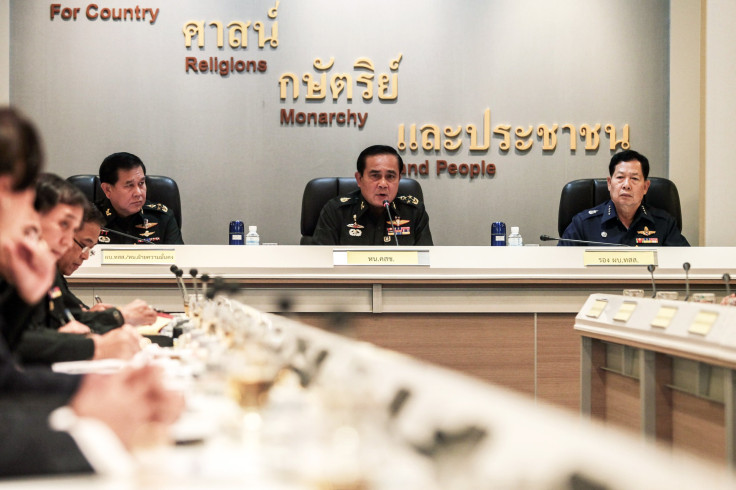Thailand's Interim Government To Be Formed By August But General Elections May Take A Year

General Prayuth Chan-ocha, head of Thailand's junta, said on Friday in an address to senior military officials that an interim government will be in place by August but general elections might take a year.
Prayuth led the military to a government takeover in May after months of bloody protests between supporters of the ruling Shinawatra clan and other political factions in the country. While the coup has been criticized by the international community and the army has reportedly clamped down on dissent by recalling expatriates critical of its rule and heavily censoring local media, the army has managed to keep the peace with the help of curfews across the country.
"A government will be set up by August, or at the very latest September," Prayuth said, the South China Morning Post, or SCMP, reported, citing Reuters. "In the next three months we must do everything properly, whether it is the constitution or other matters. Everything for the first phase should be complete by August."
The military's three-phase plan includes reconciliation, the forming of a new government and a roll-out of general elections by the ruling National Council for Peace and Order, according to Reuters.
"There will definitely be no rice pledging scheme, but whether we have one in the future or not is a different matter," Prayuth added, referring to a controversial subsidy program.
Although the military's move of clamping down on protests has been criticized by several world leaders, including from the U.S. and the European Union, the region has reportedly been peaceful since the coup mostly because of curfews established in various cities. Earlier this week, curfews were lifted in 20 provinces but remain in effect in about 50 other cities and towns across the country.
On Wednesday, the junta summoned 23 ambassadors and consuls-generals from 21 countries to curb public criticism of the coup, while reports said on Thursday that a protest leader has been charged with incitement and could be jailed for up to 14 years.
© Copyright IBTimes 2025. All rights reserved.






















